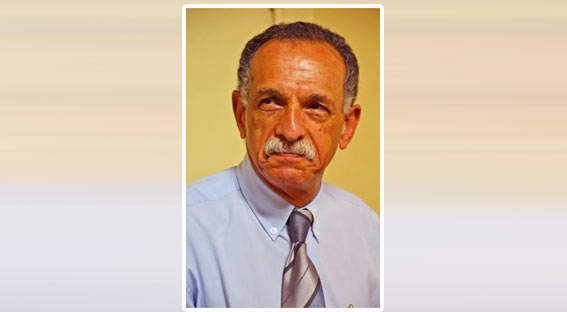Three weeks ago, I wrote about the challenges facing paper journalism in light of shrinking revenues and exacerbating expenses. While the costs of all the elements comprising journalistic work continue to rise, revenue continues to shrink; meaning that the gap between the capacity of press institutions to secure funding for their activity and their ability to meet expenses gets wider and wider.
Last May, a few weeks after Khaled al-Balshy was elected Head of the Journalists Syndicate, Watani interviewed Mr Balshy and discussed with him the challenges facing paper journalism, starting with the situation on the ground and outlooks for prospective change. First and foremost was the crisis of the pileup of losses and debts incurred by practically all press institutions, and the measures that could possibly be taken by the Journalists Syndicate and the Supreme Council for Media Regulation—both representing the State—to help journalism back to its feet and empower it into its pivotal media role. Mr Balshy said he intended to hold a general conference at the outset of 2024 to discuss the problems facing journalism as a profession, also a conference to discuss the economics of the journalism industry, specifically printed papers.
As much as I felt comfort at Mr Balshy’s words, I was disappointed that the conference he spoke of would not be held till 2024, some seven months after he had took responsibility as Head of the Journalists Syndicate. I wondered to what extent this reflected Mr Balshy’s realisation of the difficulty and urgency of the situation. Would press institutions suffering heavy losses even survive until the intended conference was held? And that is not counting what resolutions the conference would issue, their viability or practicality. I wondered whether this was a realistic way of addressing the problem, or merely some method to suspend it or postpone dealing with it.
I did not need to wait long for an answer. This came in the form of a letter sent to Watani, signed by the Head of the Journalists Syndicate Mr Balshy on 22 July 2023. The letter read:
“According to the decisions and resolutions of the General Assembly of the Journalists Syndicate in March 2023 regarding application of the minimum wage recently set by the State at EGP3,000 for the private sector and all press institutions, and the subsequent upgrade of wages according to seniority: please apply the aforementioned as of 1 March 2023 to all staff in your newspaper.”
That letter made me feel that the paper journalism industry was being squeezed between a rock and a hard place, as though the declining revenues and swelling expenses were not enough. The decision to raise the entire wage pyramid added a new burden to papers; the problem is not just about raising the minimum wage, but extends to subsequent increases in all wages according to job hierarchy. The flagrant paradox is that the Syndicate rushed to implement the wage increases, while it turned a blind eye to the almost impossibility of applying them given the dire financial situation of papers.
Fortunately, another letter arrived along with the one by the Head of the Journalists Syndicate. That was a letter from the legal councillor of the National Wages Council (NWC), affiliated to the Ministry of Planning and Economic Development. The NWC letter stipulates the minimum wage in its first article, and in its second article it stipulates that if an institution is in a financial situation that makes it impossible to pay the wage raises, it should address NWC to decide what it deems appropriate with its circumstances within thirty days on receipt of the letter. The NWC’s letter also included a significant passage: “This must be applied to all workers in the private sector, and in the event that this is violated, the aggrieved party must file a complaint with NWC or the Ministry of Labour to take the necessary legal action.”
So there still was a recourse to appeal against the decision. A few years ago, the House of Representatives passed legislation to raise the minimum wage; it stipulated that an establishment that has achieved proved losses based on its budget—approved by an auditor—may ask NWC to exempt it from applying the raise. Likewise, journalistic institutions that suffer from pileup of losses may appeal against the recent decision, and the matter would hinge on the outcome of the appeal.
In light of the current unfortunate situation, I cannot help but say that if the government wants to splurge money on workers of both the public and the private sectors, why does it not do that from its own resources, especially when it knows that the private sector’s resources have been depleted.
Watani International
11 August 2023










